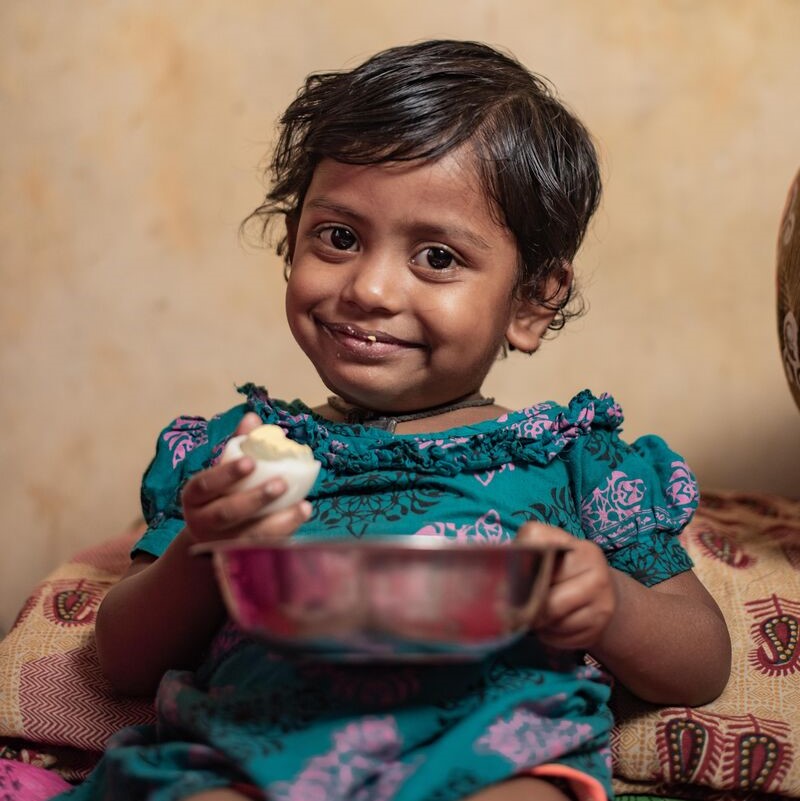Official Country Name: People’s Republic of Bangladesh
Capital City: Dhaka
Population: More than 171.1 million
Official Language: Bengali (Bangla)
Life expectancy: Male 71 years, female 74 years
Population with access to safe drinking water: 23%
Infant mortality rate: 31 deaths/1,000 live births
Percentage of children under the age of 5 underweight: 23%
Adult literacy rate: Male 78%, female 72%
Religion: Approximately 91% of the population are Muslim, 8% are Hindu, and 1% follow other faiths (including Buddhism and Christianity)
Percentage living on less than $2.15 a day: 13.5%
Source: World Bank and International Religious Freedom Report, released in 2022 by the Office of International Religious Freedom, U.S. Department of State
Bangladesh is the most densely populated country on earth with more than 168 million people living in an area roughly the size of England and Wales. Centuries ago, a number of independent principalities flourished in the region—called Bengal and around the 9th Century travellers from Arab nations opened up trading routes through the region.
For much of the 18th and 19th centuries, Bangladesh was under the rule of the British East India Company as part of the Indian subcontinent. In 1947, when the British left the region, they separated the subcontinent along sectarian lines.
What became known as ‘partition’, was far from peaceful. An estimated 500,000 individuals lost their lives in the violence and rioting that ensued. The Muslim regions became known as West and East Pakistan with the Hindu region becoming modern day India. In 1971, East Pakistan was renamed Bangladesh and became a country in its own right.
Art
Bangladesh’s heritage is influenced by animist, Buddhist, Hindu and Muslim traditions. Art includes woven goods, pottery and terracotta sculpture. Folk theatre is common in villages – particularly during harvest time or at village fairs.
Music
There is a rich tradition of music in Bangladesh, which can be divided into three distinct categories: classical, folk, and modern. Folk music, inspired by devotional mysticism and love stories, has been nurtured through the ages by village poets. It remains popular throughout Bangladesh. Modern Bengali music is diverse and blends Eastern and Western traditions. There is also a distinct strain spearheaded by the rebel poet Kazi Nazrul Islam, which combines classical, folk and Middle Eastern musical strains.
Language
Bangla (also known as Bengali): ShAgatom (Welcome), AmAr nAM (My name is...), Kemon Achho? (How are you?), DhonnobAd (Thank you) Sports and Games Popular sports in Bangladesh include cricket, football, and badminton.
Typical Foods
A typical Bangladeshi meal is spicy and consists of beef and sometimes mutton, chicken, fish or egg. Vegetables are served with lentils and plain rice. A common and popular snack is jhal muri (hot puffed rice).
Education in Bangladesh is divided into three levels - primary, secondary, and higher education.
Primary education lasts eight years, while secondary education lasts four. Secondary education is streamed into higher and lower levels, and public exams are held at the end of each level of schooling.
Education is highly respected in Bangladesh, and it's a popular topic of conversation. It can be a real challenge for those without an education to find employment, as most office jobs require a degree. Parents will work very hard to get their children the best education they can afford. Tutoring is considered necessary to help children pass general tests; however, it's also too expensive for many.
Approximately 91% of the population are Muslim, 8% are Hindu, and 1% follow other faiths (including Buddhism and Christianity).
Bangladesh is one of the largest Muslim countries in the world. While Islam is the state religion, individuals, have the right to practice the religion of their choice.
Religion is taught in government schools, and parents can choose for their child to be educated in the religion of their choice. Parents who choose for their children to attend religious classes outside of school hours usually make arrangements directly with the local churches or temple.
Statistics from the International Religious Freedom Report, released in 2022 by the Office of International Religious Freedom, U.S. Department of State
